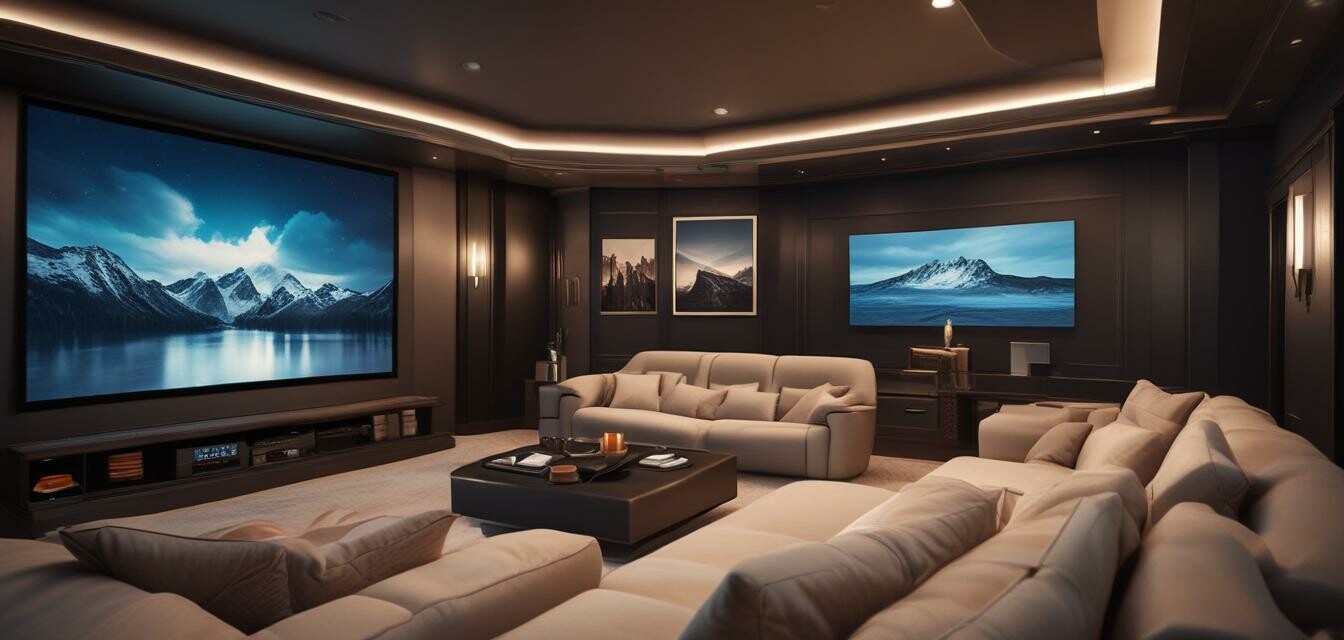
Virtual reality integration in home theaters
- The integration of virtual reality (VR) is revolutionizing home theater experiences.
- VR systems enhance immersion, allowing viewers to experience content like never before.
- Investment in VR technology can significantly boost your high-end home theater setup.
- Future advancements in VR are poised to enhance user experience even further.
- Familiarity with VR components is key to successful integration into existing systems.
As technology progresses, the way we enjoy movies, shows, and other forms of entertainment continues to evolve. One exciting innovation in the home theater landscape is the burgeoning integration of virtual reality (VR). By combining high-end audio with immersive visual experiences, VR is not just changing how we watch but how we connect with the content itself. This article investigates how virtual reality is being integrated into home theater rooms and enhancing the viewing experience.
The rise of virtual reality in home entertainment
Virtual reality has made significant inroads into home entertainment, providing viewers with opportunities to dive deep into engaging worlds. Here are some key factors driving this trend:
- Technological advancements: Continuous improvements in VR technology, such as better graphics, lower latency, and enhanced comfort, contribute to its increasing adoption in home theaters.
- Content availability: There is a growing library of content being produced specifically for VR, catering to diverse interests, from gaming to immersive movies.
- Community and experiences: VR is designed not just for solitude but also for shared experiences, allowing friends and family to enjoy together.
How virtual reality enhances the home theater experience
Virtual reality offers several advantages that traditional setups cannot provide:
| Aspect | Traditional Home Theater | VR-Enhanced Home Theater |
|---|---|---|
| Immersion | Standard screen viewing | 360-degree environments and experiences |
| Interaction | Passive consumption | Active participation in the narrative |
| Social experience | Limited to physical presence | Virtual meet-ups in shared spaces |
| Content types | Movies and shows | Interactive games, immersive storytelling |
Key components of a VR home theater setup
When considering integration, it's important to know the essential components of a VR-enhanced home theater:
- VR Headset: The focal point of your setup, providing an immersive viewing experience.
- High-quality audio system: Complementing the visual aspect, allowing users to feel every sound in the environment.
- Powerful hardware: A robust computer or gaming console capable of running VR applications smoothly.
- VR controllers: Enabling interaction with the virtual environment.
- Comfortable seating: As VR experiences can be lengthy, comfort is essential.
Challenges of integrating virtual reality
While the benefits are numerous, there are challenges associated with VR integration:
Pros
- Incredible immersion and engagement
- Access to unique content types and experiences
- Enhanced social interactions via shared VR spaces
Cons
- Potentially high initial investment
- Physical discomfort during prolonged use
- Learning curve for new users
Future trends in VR and home theaters
The future looks promising for virtual reality in home theaters. Here are some notable trends to watch:
- Improving hardware: Continued advancements will lead to more powerful headsets with higher resolutions and refresh rates.
- Expanded content libraries: More filmmakers and developers are exploring VR, resulting in a broader range of content.
- Integration with smart home technology: Seamless connections between VR systems and other smart home devices to create a fully integrated experience.
Conclusion
The integration of virtual reality into home theaters is more than just a trend; it's a full-scale transformation of the way we view audiovisual content. With its potential to enrich immersion and offer unique interactive experiences, it's time for enthusiasts to consider how VR might elevate their home theaters. For those looking to explore further, check out our setup tips to navigate the complexities of implementation and learn more about buying VR-compatible equipment that will complement your luxury installations.
In the rapidly evolving landscape of entertainment technology, staying updated is crucial. Be sure to visit our News and Trends section to keep abreast of the latest developments in high-end home theater systems.

